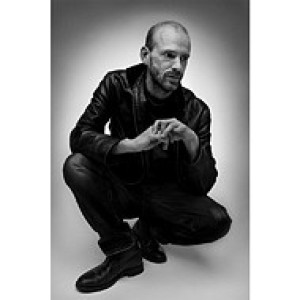Two poems
The Lake Isle of Innisfree
I will arise and go now, and go to Innisfree,
And a small cabin build there, of clay and wattles made;
Nine bean rows will I have there, a hive for the honey bee,
And live alone in the bee-loud glade.
And I shall have some peace there, for peace comes dropping slow,
Dropping from the veils of the morning to where the cricket sings;
There midnight's all a glimmer, and noon a purple glow,
And evening full of the linnet's wings.
I will arise and go now, for always night and day
I hear lake water lapping with low sounds by the shore;
While I stand on the roadway, or on the pavements gray,
I hear it in the deep heart's core.
William Butler Yeats (1865-1939)
Just an excuse for another bee picture.
Another short poem caught my eye today. On another social network a friend posted an image that included a short poem, called "Colour"
When I born, I Black.
When I grow up, I Black.
When I go in sun, I Black.
When I scared, I Black.
When I sick, I Black.
When I die, I still Black.
And U white fellows.
When U born, U Pink.
When U grow up, U White.
When U go in sun, U Red.
When U cold, U Blue.
When U scared, U Yellow.
When U sick, U Green.
When U die, U Grey.
And U called me coloured?
It was accompanied by a picture of a young child and a claim that it had been written by an African child and nominated as best poem of 2005. Which sounded a little odd, so I did a bit of research.
Turns out, if you look for it on the web, some people think it was actually the UN poem of the year in 2005.
And 2006.
And 2008.
I didn't know the UN had a poetry prize. And its rules must be a bit lax, if the same poem can be entered for it year after year, let alone keep on winning the prize.
Other people pointed out that it had, in fact, been written by Malcolm X, who died in 1965, so it was really a lot older.
If Malcolm X did use it, in English, he was only quoting a translation of a poem that was originally written in French. It was written by Léopold Sédar Senghor (1906-2001) who was a Senegalese poet, politician, and cultural theorist and who was the first president of Senegal (1960-1980). Wikipedia says that he is regarded by many as one of the most important African intellectuals of the 20th century.
So why attribute his poem to an unknown African child? Does it make a better story? Seems to me that Léopold's story is pretty good - first president of his country, who wrote some great poetry.
Did it all start as a bit of fun? Someone must have started the story somewhere. Was it just a game - let's see what misinformation we can spread across the web? But why this particular fib?
The cynic in me thinks these things never start by accident, but if it wasn't a game, what exactly was the motive for removing the real author from his work? Maybe it was as simple as someone trying to make money. Someone who put it on a poster or a postcard and rather than pay to use it, attributed it to an 'African child', that might just as well be 'Anon'.
Or was there a more political motive that seeks to portray Africa and Africans in a certain way. A 'victim continent' that cannot look after itself, rather than a place of creative intellectuals and self-determination?
I wonder.

Comments
Sign in or get an account to comment.


